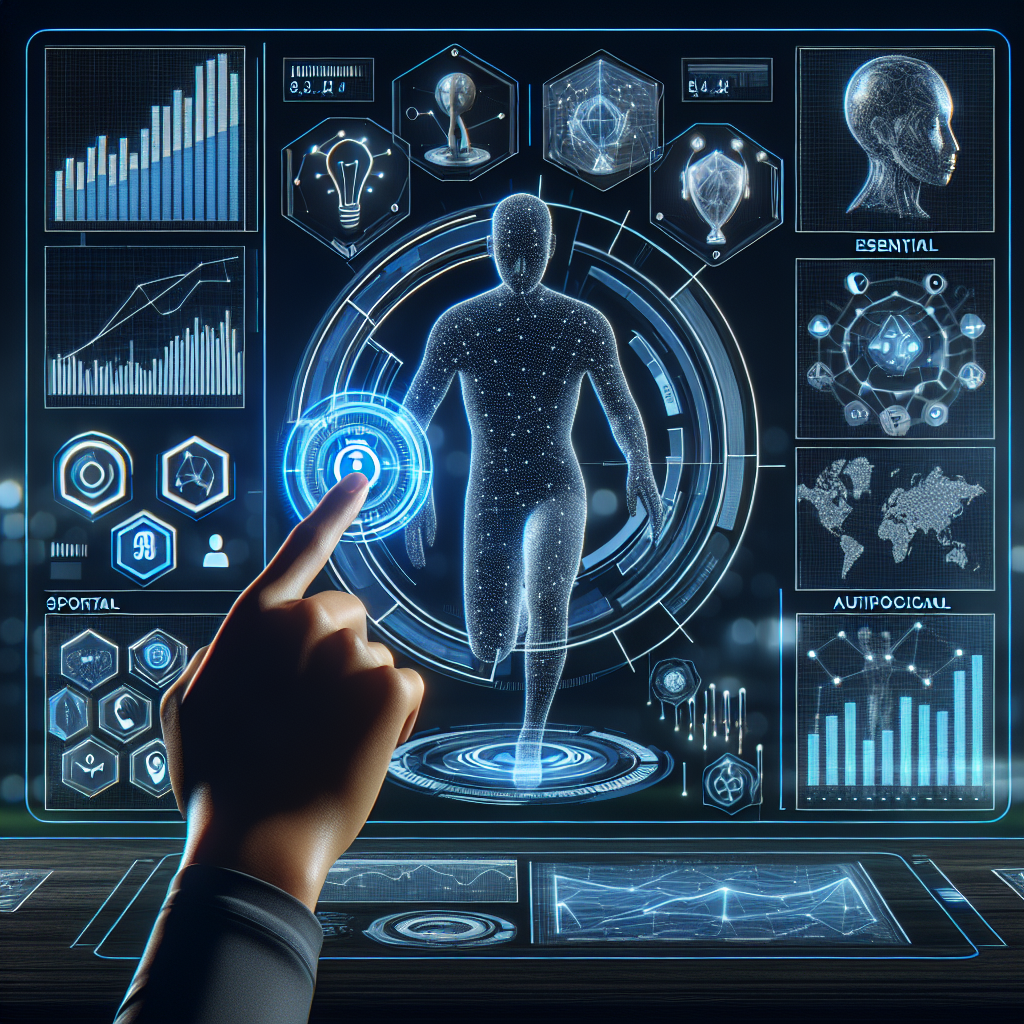AI-Powered Sports Performance Prediction Models: Revolutionizing the Game
In recent years, the sports industry has seen a significant shift towards the use of artificial intelligence (AI) technology to enhance performance prediction models. These AI-powered models have revolutionized the way athletes and coaches approach training, game preparation, and strategic decision-making. By leveraging data-driven insights and machine learning algorithms, these models have the potential to predict outcomes with unprecedented accuracy, leading to improved performance on the field, court, or track.
What are AI-Powered Sports Performance Prediction Models?
AI-powered sports performance prediction models are advanced software systems that analyze vast amounts of data to predict the outcome of athletic competitions, as well as individual and team performance. These models use a combination of historical data, real-time game statistics, player information, and other relevant factors to generate predictions and insights that can help coaches, athletes, and sports organizations make more informed decisions.
How do AI-Powered Sports Performance Prediction Models Work?
AI-powered sports performance prediction models work by ingesting large amounts of data from various sources, such as player statistics, team performance history, weather conditions, and other relevant factors. This data is then analyzed using machine learning algorithms to identify patterns, trends, and correlations that can be used to predict future outcomes.
For example, a basketball performance prediction model could analyze factors such as shooting percentage, turnovers, rebounds, and assists to predict the outcome of a game. Similarly, a soccer prediction model could consider factors such as goals scored, possession time, and passing accuracy to predict the outcome of a match.
Once the model has been trained on historical data, it can be used to generate predictions for upcoming games or events. These predictions can help coaches and athletes make strategic decisions, such as adjusting training regimens, game plans, or player rotations, based on the insights provided by the model.
Benefits of AI-Powered Sports Performance Prediction Models
There are several benefits to using AI-powered sports performance prediction models, including:
1. Improved Accuracy: AI-powered models can analyze vast amounts of data and identify patterns that may not be apparent to human analysts. This can lead to more accurate predictions and insights that can help athletes and coaches make better decisions.
2. Enhanced Training and Preparation: By providing insights into player performance, opponent tendencies, and other relevant factors, AI-powered models can help coaches tailor training regimens and game plans to maximize performance on the field.
3. Strategic Decision-Making: AI-powered models can provide coaches with real-time insights and recommendations that can help them make strategic decisions during games, such as when to make substitutions, change tactics, or adjust game plans.
4. Injury Prevention: AI-powered models can also help identify potential injury risks and recommend strategies to prevent injuries, such as adjusting training loads or rest periods based on player performance data.
Overall, AI-powered sports performance prediction models have the potential to revolutionize the way athletes and coaches approach training, game preparation, and strategic decision-making, leading to improved performance and competitive advantage.
FAQs
Q: Are AI-powered sports performance prediction models accurate?
A: AI-powered sports performance prediction models are designed to analyze vast amounts of data and identify patterns that can lead to more accurate predictions. While no model is perfect, AI-powered models have been shown to outperform traditional prediction methods in many cases.
Q: How are AI-powered sports performance prediction models trained?
A: AI-powered sports performance prediction models are trained using historical data from past games, competitions, and events. This data is used to teach the model to identify patterns, trends, and correlations that can be used to predict future outcomes.
Q: Can AI-powered sports performance prediction models be used in real-time?
A: Yes, AI-powered sports performance prediction models can be used in real-time to provide coaches and athletes with insights and recommendations during games or events. These real-time predictions can help coaches make strategic decisions and adjustments based on the latest data.
Q: What sports can benefit from AI-powered performance prediction models?
A: AI-powered sports performance prediction models can be used in a wide range of sports, including basketball, soccer, football, baseball, tennis, and more. These models can help athletes and coaches improve performance, make better decisions, and gain a competitive edge in their respective sports.
In conclusion, AI-powered sports performance prediction models have the potential to revolutionize the way athletes and coaches approach training, game preparation, and strategic decision-making. By leveraging data-driven insights and machine learning algorithms, these models can provide accurate predictions and insights that can help athletes and teams achieve peak performance on the field. As the sports industry continues to embrace AI technology, we can expect to see even greater advancements in sports performance prediction models in the years to come.

